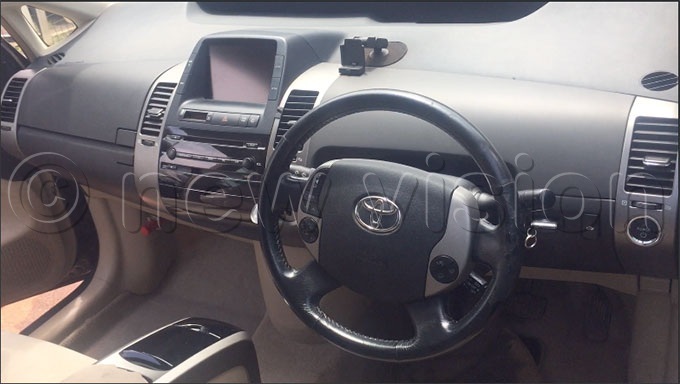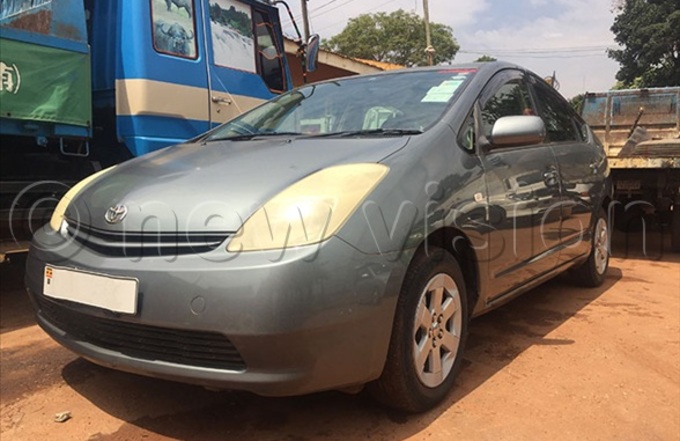Toyota Prius: Local market's electric car experiment
Hybrid electric cars are currently being experimented by a few people. This is partly because it has the combustion engine for fossil fuel – petrol – but also a battery.
MOTORING
The whole world is now gravitating towards electric and hybrid electric cars as the global fight to reduce carbon emissions to save the environment gains momentum.
Locally electric cars are a dream but electric bikes are fast getting embraced because of the low cost of ownership and maintenance.
However, hybrid electric cars are currently being experimented by a few people. This is partly because it has the combustion engine for fossil fuel - petrol - but also a battery.
Muhammad Noorussiam, who drives a 2005 model of a Toyota Prius, Toyota's hybrid car says its edge is fuel economy. He explains that once fully charged, the car can do city rides on purely battery because it automatically charges as the car is moving using the spin of the wheels.
However, the battery doesn't charge when it is being used. The battery level is measured on the dashboard. Therefore, once in a while, you will have to use fuel to enable the battery to charge.
 Interior of the Toyota Prius
Interior of the Toyota Prius
He notes that on automatic mode, when the speed goes above 45-50km/h, it switches from battery to fuel. Below that, you might never use fuel.
However, he notes that he has never monitored how far it can go on battery. But most times he is driving out of town he uses fuel. The gear lever is mounted on the dashboard and it's powered by a Hybrid Synergy Drive.
Talha Maksoud of Aisha car bond also says he has never noticed how far it can go on full charge but normally drives it from Lugogo to Ntinda many times. Also, he says he has never monitored how long it takes to charge fully but it is very economical especially in town.
Maksoud says people that buy hybrids use both the battery and combustion engine functions. But he says the they are not so many on the road because of perception, and that is partly because of what mechanics discourage potential buyers claiming it is difficult to maintain and expensive to own.
He explains that on the gear lever is Drive (D), Neutral (N), Reverse (R) and Battery (B). So, in manual mode, you switch to battery whereas in the automatic mode, if you are, say driving at a speed of about 40km/h, it automatically switches from combustion engine to battery. So, in town you can drive on battery fully. In the traffic jam when idling, it switches to battery to save fuel.
Maksoud notes that the one thing that consumes a lot of fuel is traffic jam. "It is because you aren't going anywhere. It is also not advisable to start and switch off the car in a jam but with hybrid, as long as your foot is on the brake pedal, it switches off automatically. When you accelerate, it starts on battery," he explains.
Therefore, in manual mode, he says you choose between fuel and battery but in automatic, it does the work automatically.
He attributes its low number to the fact that it is a new technology, not so many mechanics can fix as he only has one specific mechanic that fixes his, in the past he knew none.
According to Noorussiam, the Prius has exceptional fuel economy given its 1.8L engine, comfort with fabric seats and ample head and legroom. Is silent on the road and inside the cabin, and picks speed very fast.
 Front view of the Toyota Prius
Front view of the Toyota Prius
However, he notes that once the speed gets to about 60-70km/h, it begins to make some sound but doesn't get to the noise level of a combustion engine car.
He adds that in his home country of Pakistan, hybrids are common and it's widely because of fuel economy.
"If you spend about sh50,000 on a combustion engine car from Kampala to Entebbe, you come back when the fuel is over. But on a hybrid, you put sh25,000 and go and return when you have some left because it s good on fuel," he explains.
On spare parts, he says they are slightly expensive. They have a mechanic who supplies them. The hybrid does not share parts with ordinary Toyotas. But the tyres, mirrors and a few other parts are really the same.
He also says the newer models are expensive because of taxes the reason there is mainly the older 2005 model in the market. That the 2010 model for example pays about sh27m in taxes.